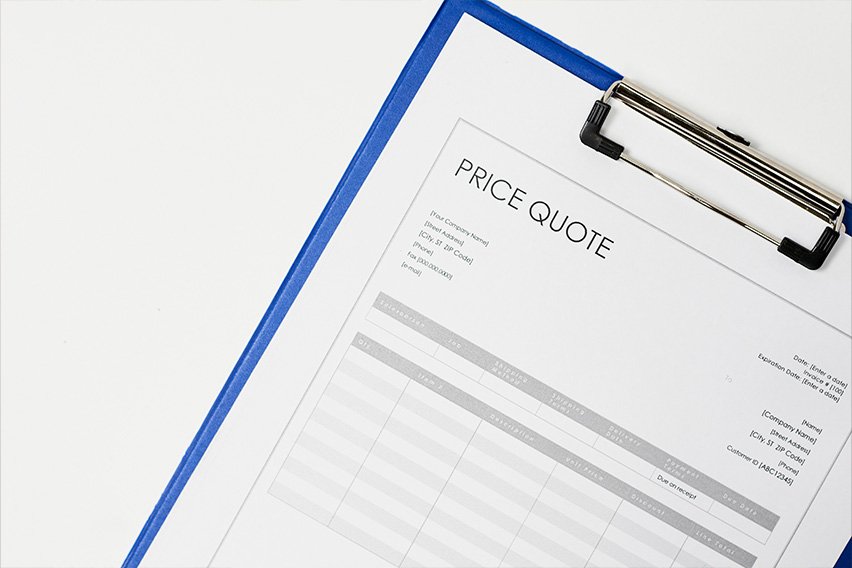How to Start a Copywriting Business | Freelance Writer's Career Guide

To start a copywriting business, you’ll need to select the services you’ll offer clients, showcase your writing samples and market yourself to attract new clients to hire you as a freelance copywriter.
These topics will walk you through how to start a copywriting business:
How to Start a Copywriting Business: Step-By-Step Guide
How Much Does a Freelance Copywriter Charge?
Do You Need a Degree to Be a Copywriter?
What Does a Freelance Copywriter Do?
How to Start a Copywriting Business: Step-By-Step Guide
1. Cover the Basics
Before you can start a copywriting business, you’ll need to cover the basic requirements of running a freelance company. First, make sure you have all the supplies you’ll need to be a copywriter, including a computer, an internet connection and a website promoting your services. If you buy anything new for your business, make sure you track the expense so you can deduct it from your income taxes. You also may need to register your business and purchase insurance.

2. Plan Your Copywriting Business
Develop a plan of action that outlines your goals, business strategy and target clients. Analyze your competition by looking up other freelance copywriting businesses in your market to see what services they offer and how much they charge clients for their services. You’ll also want to plan a promotional strategy for growing your business over time.
3. Choose Your Services
What services will your freelance copywriting business offer to its clients? You may want to specialize in specific areas of copywriting, such as advertising copy, website content, email marketing copy and more. If you have experience in a particular type of writing, you may want to choose to focus on that niche while getting your copywriting business off the ground.
4. Develop Your Brand
A strong brand will set you apart from your competitors and give your business a personality that clients can relate to. Your brand includes the tone and style of your business as well as the graphic look of your business, including your logo, fonts and color palette. Once you have a clear brand, you can use it across all your marketing materials, including business cards and your website.
5. Establish Your Rates
Setting the rate you’ll charge yclients is an important step and can also be one of the most challenging tasks for writers who are new to freelancing. First, take a look at what other copywriters in your area charge, so you can establish a realistic range for the industry in your city. Find other copywriters offering similar services with similar experience levels to you and see what their rates are. It’s a good idea to set both an hourly rate and a per-word rate, to offer clients some flexibility. When setting your rate, it’s important to take into consideration all the business expenses that must be covered by your earnings, including your rent, utilities, health insurance expenses and more. It can be tempting to set a low rate when you’re starting out to attract as many clients as possible, but make sure your rates are sustainable in the long run and offer you a comfortable living.
6. Gather Your Writing Samples
If you’ve worked as a copywriter for an agency or brand before leaving to start your own copywriting business, you’ll want to gather writing samples from your work that showcase your talent and demonstrate the range of media, industries and clients you’ve written for. If you don’t have previous copywriting experience, you’ll still need writing samples to show potential clients. Consider doing spec work to showcase your skills. Spec work involves producing ads on behalf of a business, without working for them. Often, writers starting out will develop copy for big brands to show the kind of work they’d produce to make a splash for that company, even though they don’t work for them.
7. Develop an Online Portfolio
Once you have selected all your writing samples, you’ll need somewhere to display them so potential clients can see your work. Develop an online portfolio that showcases your writing samples, provides a listing of your services and offers a bio so clients can learn more about you and your background. You can use portfolio templates from WordPress or SquareSpace, or hire a web developer to build you a custom site.
8. Sharpen Your Skills
Copywriters should always be improving their writing skills or learning new skills that can help grow their business. If you’d like to learn about technical writing, SEO principles or another new skill, consider enrolling in classes at a local college or signing up for online courses you can complete from anywhere. Online services like Udemy or Skillshare can help you learn new skills quickly and inexpensively.
9. Create a Legal Contract
When you’re just starting out as a freelancer, you’ll want to have a templated contract in place that you can send to new clients to protect yourself and clearly outline the work your client will receive from you. A contract outlines the services you’ll provide, the timelines for completing the work and the amount your client will pay you for your services. It should be signed by both you and your client. Get an in-depth guide on how to develop a legally binding contract for small businesses.
10. Establish an Accounting System
Once client payments start rolling in, you’ll need an accounting system in place to file and record those payments and manage your invoicing. First, make sure you know all the basics of small business accounting. Then, choose an accounting system that works for you. You can handle your business accounting manually, tracking payments and creating invoices in Excel or Word, or you can simplify your small business accounting by using a cloud-based accounting service.
11. Pitch Your Business
To run a successful copywriting business, you need to convince clients to hire you. You can send pitch emails to market yourself to potential clients. Pitch emails should introduce yourself and your services and offer a persuasive reason why you’d be the perfect freelance copywriter for their business. Advertising agencies often hire freelance copywriters to work on a project-by-project basis and can be a good place to start sending pitches. When pitching your copywriting business, always link to your online portfolio, and include links to specific writing samples that are particularly relevant to the brand you’re pitching.
12. Attend Networking Events
Networking events offer a great opportunity for freelance copywriters to meet with potential clients. In the early years of your copywriting business, you’ll need to be constantly finding new clients to keep your business afloat. Networking events don’t have to be specific to the marketing or advertising industry. If there’s a networking event for tech startups in your city, that could be a great opportunity to meet startup founders who might need the services of a freelance copywriter.
13. Ask for Referrals
Don’t be shy about asking clients to refer you to their colleagues and acquaintances. Often, they’ll be happy to do so. Word of mouth referrals are some of the strongest leads you can get, since a person is receiving a recommendation from someone they know and trust. You can also offer clients rewards for bringing you new business. For example, if a client brings you new business by telling a friend about your services, you can offer them a $50 referral discount off their next invoice.

How Much Does a Freelance Copywriter Charge?
How much a freelance copywriter charges depends on their experience level and the type of copywriting they provide. Freelance copywriters can charge by word, by page, by hour or by project. Freelance copywriters charge anywhere from $25 per hour to over $100 per hour.
For freelance copywriters looking to establish your rates, be sure to take in to consideration the following factors:
- How much other copywriters in your area charge for similar work
- How much experience you have: the more experience you have, the more you should charge
- Consider your overhead fees: what do you pay for rent, insurance, utilities, software and marketing?
- When setting hourly rates, don’t forget to account for the amount of time you spend working that isn’t billed to clients for meetings, phone calls, pitches, research, creating and sending invoices, doing bookkeeping, etc. Check out our article that provides guidance on how to make an invoice for hours worked.
Do You Need a Degree to Be a Copywriter?
You don’t necessarily need a degree to become a copywriter, but these days most employers and clients look for copywriters who have a bachelor’s degree in a related field. That can include an English degree, Communications degree or Journalism degree. Earning a degree can also help you find work because these programs often allow students to complete internships in related fields, which can help you make important career connections and lead to full-time work after you graduate.
What Does a Freelance Copywriter Do?
A freelance copywriter is a professional writer who writes words, or copy, for businesses on a contract basis. Freelance copywriters write copy for a variety of contexts, including:
- Digital advertising copy
- Print advertising copy
- Website content
- Speech writing
- Blogging
- Social media content
RELATED ARTICLES

 Tax Deductions for Self-Employed Workers
Tax Deductions for Self-Employed Workers What Is a Price Quote? An Introduction for Small Businesses
What Is a Price Quote? An Introduction for Small Businesses What Is a Business Proposal? A Simple Definition for Small Businesses
What Is a Business Proposal? A Simple Definition for Small Businesses 7 Simple Steps to Write a Business Proposal | A Guide for Small Businesses
7 Simple Steps to Write a Business Proposal | A Guide for Small Businesses Create a Quote in 8 Simple Steps: A Guide for Small Businesses
Create a Quote in 8 Simple Steps: A Guide for Small Businesses How Can You Convert an Estimate to an Invoice
How Can You Convert an Estimate to an Invoice